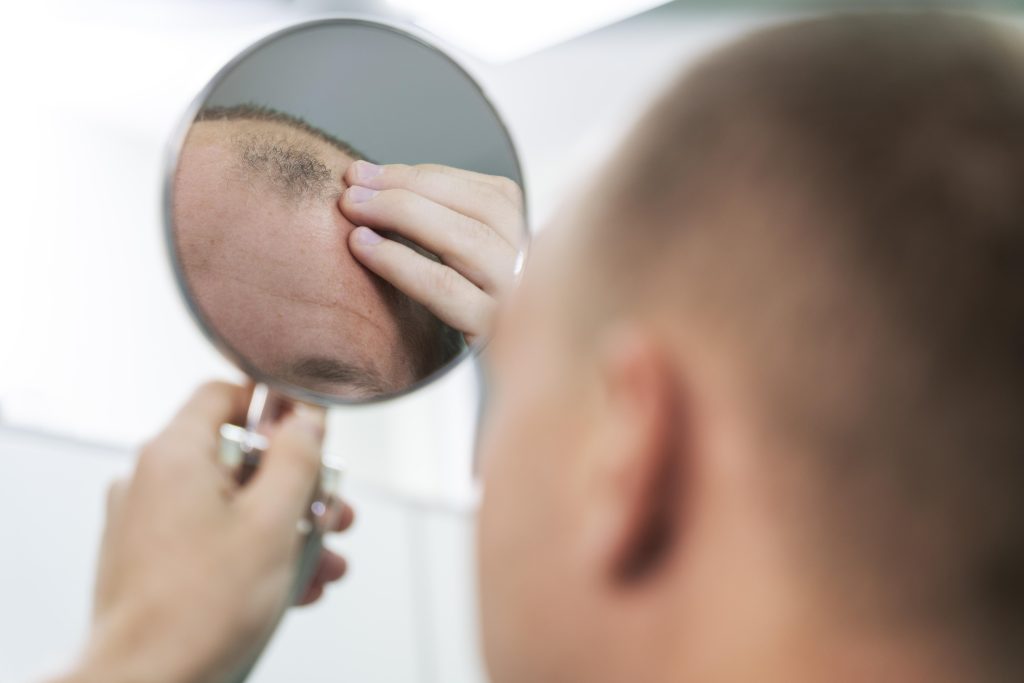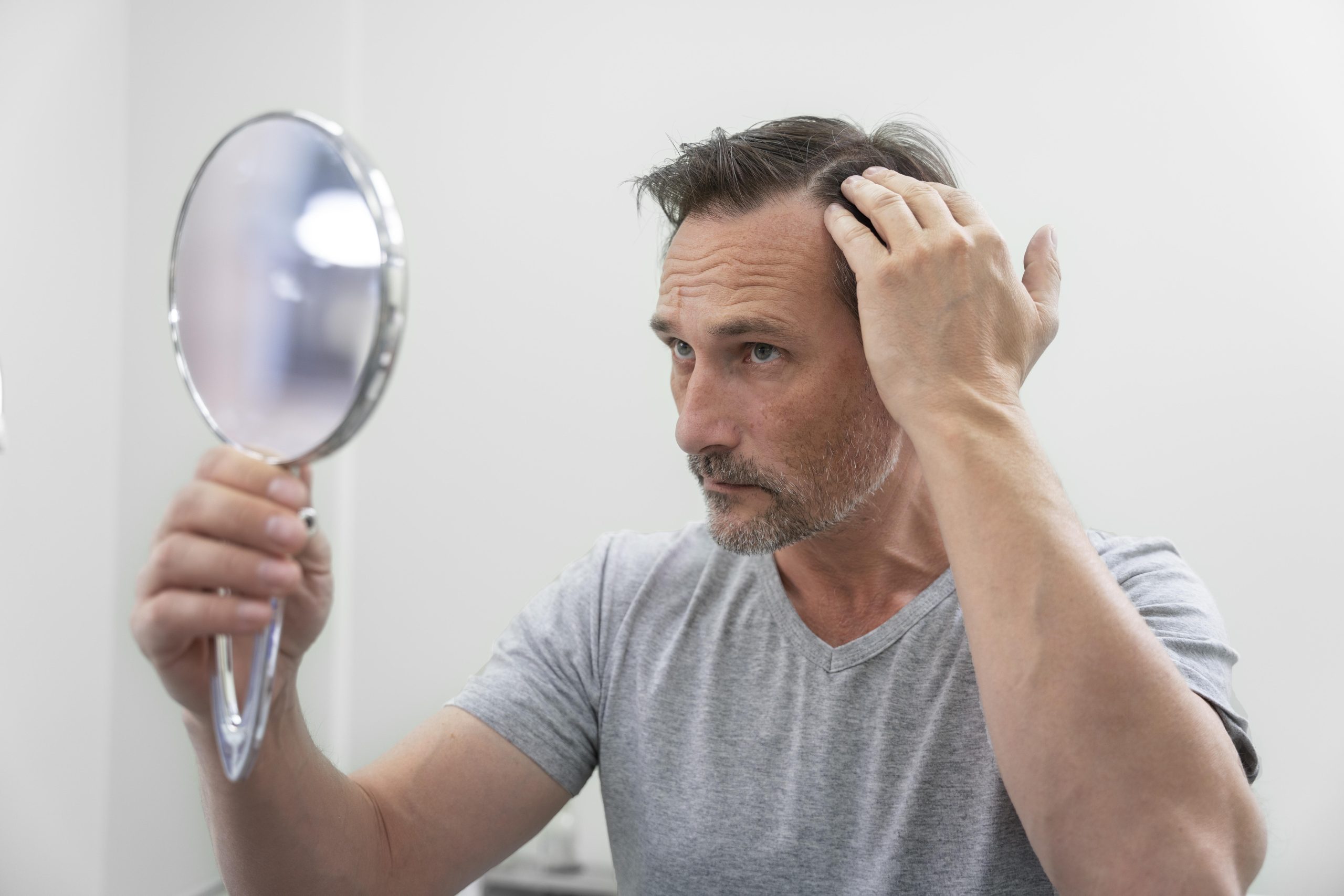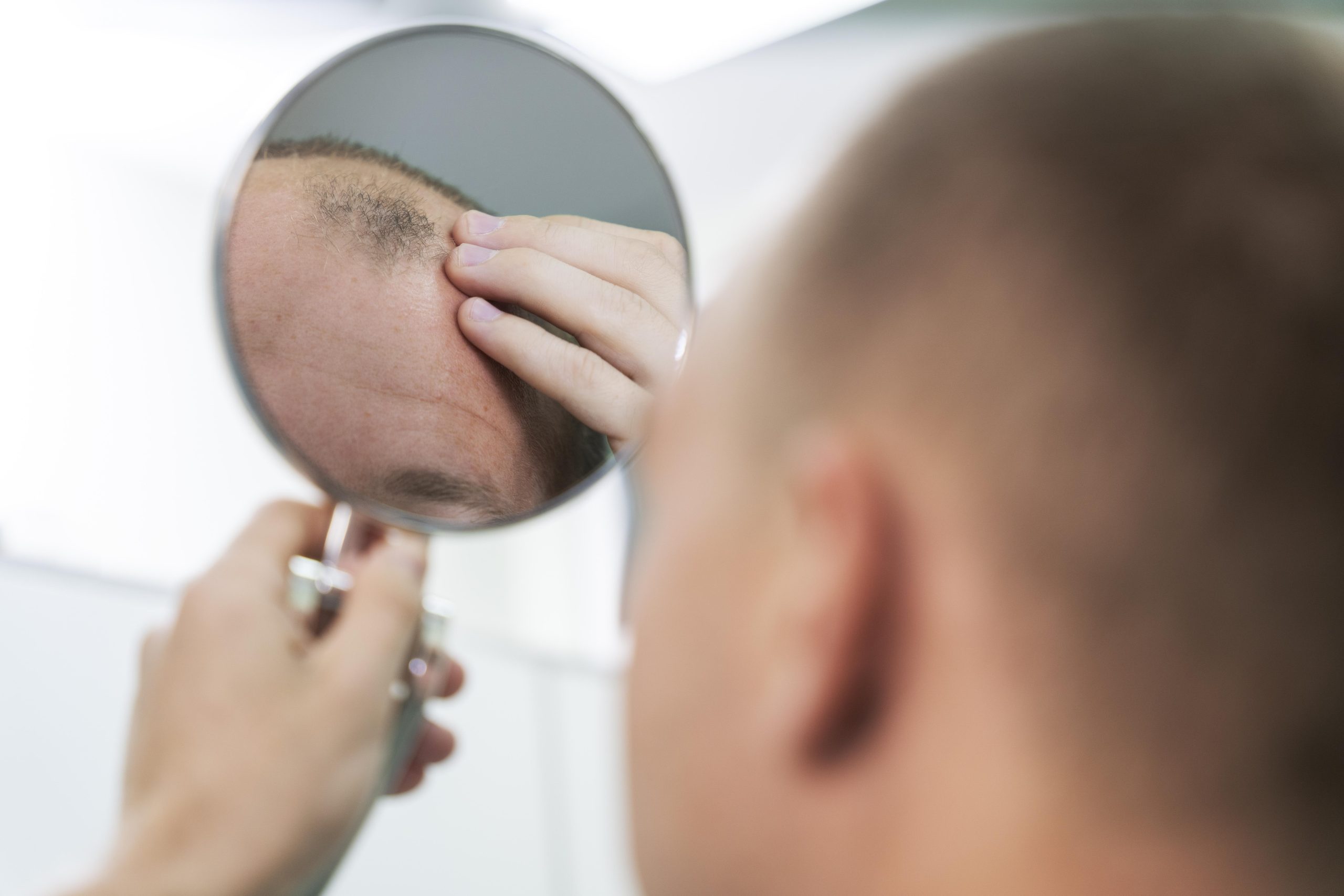Hello! Today we’re talking about something that affects quite a number of people regardless of gender, race or status – hair loss. This is what’s important to understand: if you’re finding a few more strands in your brush or observing your hairline slowly moving backward, you’re not alone in the process. Let’s go ahead and get into this problem that affects so many people.
Things That Influence Hair Loss
Listen carefully to me, your hair has a wonderful story to tell. When we are discussing hair loss, or what doctors refer to as alopecia, we are discussing genetics, hormones, and lifestyle. You did not know that approximately 80% of men and 50% of women will develop visible hair loss over their lifespan, did you? Recent research shows that it is not just a matter of genetics – it is a condition with many different interconnected causes.

The most common type you’ll learn about is androgenetic alopecia – your garden-variety pattern baldness. Fun fact: your body is constantly performing a subtle dance of hair growth and hair loss. When the dance gets out of balance, due to stress, illness, or other factors, that’s when you notice changes. Research informs us that everything from thyroid function to iron levels can influence this natural process.
Delving into the specifics, your hair follicles are very sensitive to hormones, namely dihydrotestosterone (DHT). Once these hormones get out of balance, it’s like changing the music mid-dance – things get a bit jumbled. Studies have found that this hormonal imbalance can start as early as puberty, though you may not notice its impact until later in life.
The Hidden Emotional Toll
Your hair loss is an emotional experience that may impact your self-esteem and confidence. Recent studies have discovered an interesting connection between hair loss and depression – people with major depressive disorder are 90 percent more likely to suffer from hair loss, and people who suffer from hair loss have a 34 percent increased risk of developing depression.
Your hair is generally attributed to your identity, self-expression, and confidence. When you start losing it, you are not just losing strands; you can feel like you are losing part of yourself. The emotional aspect is vital for finding the right treatment. Evidence suggests that working on the physical and the emotional aspects leads to improved results.
Taking Control: Prevention and Treatment Measures
You have more power over this than you think. Though genetics cannot be changed, you can influence how your body responds to the factors of hair loss. The following are proven steps:
Nutritional Mastery: Science has proven that certain nutrients support health for hair. Your body is like a garden: it needs special nutrients to grow incredible healthy hair. Iron, protein, vitamins A, C, and E, and omega-3 fatty acids are your hair’s best friends.
Stress Management: It’s been seen by research that hair follicles may be pushed to a resting stage due to constant stress, which leads to uncontrollable hair fall. Stress-mitigating practices are beneficial for your scalp as well as mind.
Early Intervention: Starting treatment when you first notice thinning improves your chances of maintaining and re-growing hair. Clinical tests verify that FDA-Approved treatments work most successfully when they’re started early on.

The Future of Hair Loss Treatment
Hair loss treatment is constantly evolving, and the future appears bright. Genetic studies reveal new possibilities for treatment, while sophisticated diagnostic equipment allows us to foresee and forestall hair loss even before it becomes apparent.
Remember that hair loss treatment works best when treating all channels of treatment. Existing research proves that the application of traditional treatments with lifestyle change and psychological therapy yields the best result.
Your hair loss experience is yours alone. Whether you are only starting to notice the effects or have been dealing with this for many years, there is always hope and always a path ahead. The science keeps improving, the treatments get better, and we learn more about this condition every day.
Your experience of hair loss does not have to define you – but how you approach dealing with it and tackling it head-on can transform you. Make that move today. No matter if it’s discussing with a physician, implementing some dietary changes, or even simply reading more about your condition, you’re already well on the path towards taking control of your hair health journey.
Recall, transformation starts the moment you decide to take action. Are you set to start your transformation?
This article is solely for information and does not form medical advice. Always seek the advice of a qualified healthcare professional before starting any treatment.

